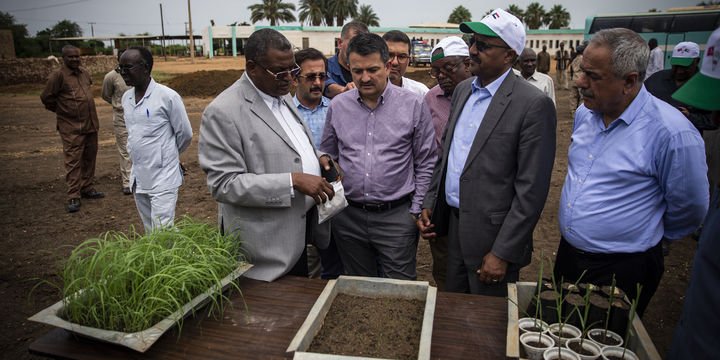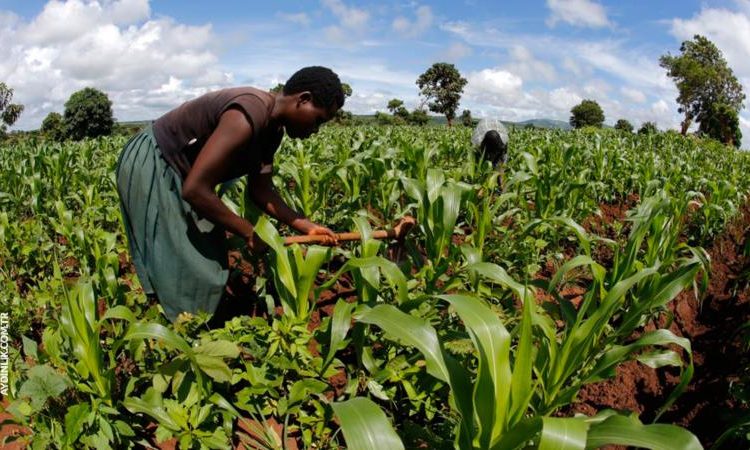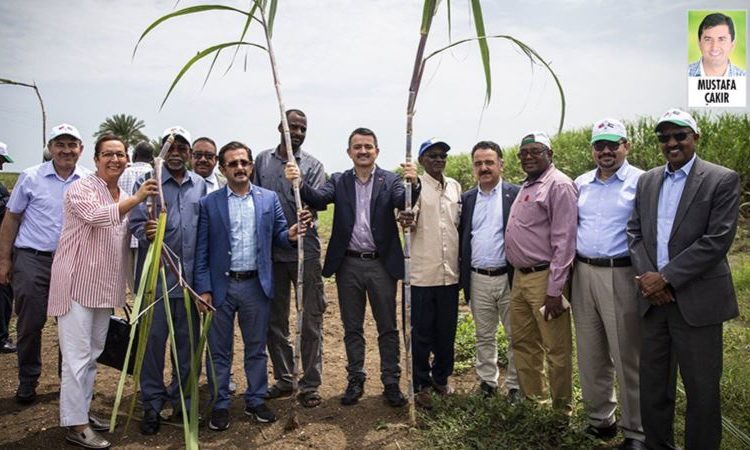Levent Kenez/Stockholm
At a parliamentary committee meeting on Tuesday, at which the budget of the Turkish Sudan International Agriculture and Livestock Corporation, established for agricultural production by using land in Sudan, was discussed, allegations that the government has long denied were confirmed by the company.
On April 28, 2014 Sudan and Turkey signed the “Agreement on Bilateral Agricultural Cooperation and Partnership Between Turkey and Sudan,” which went into effect on November 19, 2015. Within the scope of the agreement, preparations began for the establishment of a joint agricultural company that would run a pilot farm on 12,500 hectares of land in the Abugota-1 region of Sudan.
Turkey’s General Directorate of Agricultural Enterprises (TİGEM) planned to produce cotton, soybeans, sunflowers, sesame, wheat, corn, sugarcane, broad beans, clover, tomatoes, eggplant, cucumbers and peppers on the pilot farm.
The Turkish Sudan International Agriculture and Livestock Corporation was established in 2017, 80 percent of which belongs to TİGEM and 20 percent to Sudan. The founding capital was to be $10 million, of which $8 million would be provided by TİGEM and the remaining $2 million would be given in agricultural land by the Sudanese Ministry of Agriculture and Forestry.
Minutes of the committee meeting on May 31, 2022:
In his presentation to the committee members, General Manager Hasan Gezinç admitted that although five years had passed since the establishment of the company, “a problem with the land not being arable could not be solved.”
Opposition lawmakers had asked the government numerous times if it was true that agricultural land had not even been allocated, but the questions remained unanswered.
Gezinç said that as a result of Turkey’s insistence to resolve the land issue as soon as possible, Sudanese Minister of Agriculture and Forestry Al-Tahir Ismail Harbi gave them an official document containing the coordinates for two areas, measuring 113,282 hectares and 12,834 hectares, during a visit to Turkey in August 2021.
The general manager added that an expert team consisting of the employees of the Turkish Ministry of Forestry and Agriculture went to Sudan in October 2021 to examine the proposed land. However, as a result of the team’s report, it was decided that the land would not be economically suitable for agricultural production.

In addition to the fact that the agricultural land is not arable, Nordic Monitor previously reported that the land on which a pilot farm would be established was not under the authority of the central government, but rather under the administration of states or tribes. It was already conveyed to the Turkish side that there were villages on the land shown to the Turkish delegation and that the needs of these villages and villagers must be met to establish a business; otherwise, there was a risk that the villagers would loot their agricultural land.
According to Gezginç, the political instability and pandemic conditions in Sudan are the main reasons for the delay in the project. Opposition deputies argued that Sudan has been a politically unstable country for years and said that choosing Sudan for such a project was a mistake from the very beginning.
Main opposition Republican People’s Party (CHP) deputy Atilla Sertel objected to the reasoning of “production of agricultural products that cannot be produced in Turkey’s ecology or whose production is insufficient in Sudan,” which is shown as the purpose of establishment of the company, and asked the general manager to explain what products cannot be produced in Turkey but that could be produced in Sudan.
He did not receive an answer to his question.
Another CHP deputy, Orhan Sarıbal, demanded that the project be terminated as soon as possible, suggesting instead investment in unused agricultural land in Turkey. He argued that there was no safe environment for the company to continue its activities and that the project was not economically viable as a result of the excessive depreciation of the lira against the dollar. He stated that the founders and managers of the company were financed with public resources that were wasted on a project that did not pay off.
The inactive company has its main office in Ankara and a branch in Khartoum.

General Manager Gezinç announced that according to a decision taken by the Ministry of Agriculture and Forestry, the ministry personnel on the company’s board of directors will not receive any compensation. However, this means that other board members who are not ministry personnel will continue to receive attendance fees from a company that is not operating.
Opposition lawmaker Aytun Çıray of the İYİ (Good) Party previously stated that the company had one employee as of 2020, a janitor. According to Çıray TL 416,695 was paid to six members of the board in the same year.
Upon the recommendation of the Court of Accounts, it was decided to keep the company under monitoring, and the balance sheets for 2020 were approved by a majority of votes in the committee.
Trade registry filing of the the Turkish Sudan International Agriculture and Livestock Corporation:












